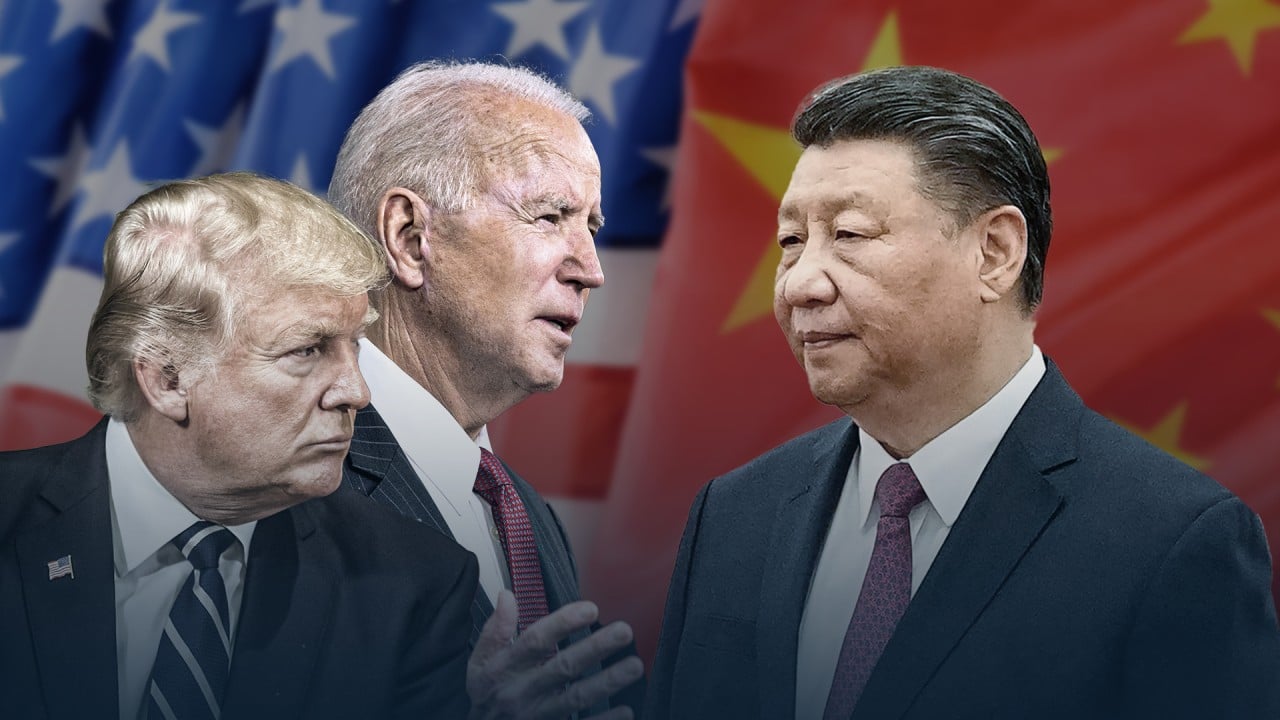
Goldman cuts bullish China stock targets again as economy falters, US investors turn bearish
- US investment bank has lowered its target for MSCI China Index for a second time in as many weeks as market turns bearish on economy
- At best, China viewed as a trading market, as opposed to a longer term buy-and-hold opportunity, Goldman says of clients’ perception of Chinese stocks
The US investment bank cut its 12-month target for the MSCI China Index to 70 from 80, according to a report published on Friday, after dialling back its earnings and valuation forecasts for the country’s stocks traded at home and abroad. Goldman first lowered its base target to 80 from 85 in the middle of last month, based on recent reports to clients.
“Investors have de-risked, sentiment is very negative and technical indicators are in oversold territory,” Goldman strategists including Singapore-based Timothy Moe said in the new report. “At best, China was viewed as a trading market, as opposed to a longer term buy-and hold-opportunity.”
The MSCI China index tracks 715 companies, with Tencent Holdings, Alibaba Group Holding and Meituan as its three biggest members. The gauge has tumbled 22.4 per cent from a January 27 peak, erasing US$516 billion in market value, according to Bloomberg data. Alibaba owns the Post.
Separately, Goldman also lowered its CSI 300 Index target to 4,500 from 4,700 due to softer-than-expected first-quarter earnings from onshore-listed companies. The CSI 300 Index has declined about 9 per cent this year to hit a six-month low, surrendering as much as 17.5 per cent in gains.
BYD, Li Auto set sales records as price war in China’s car industry subsides
“This is a particularly uncomfortable time to be overweight on mainland China,” Herald van der Linde, head of Asian equity strategy at HSBC, said in a report. “The economic recovery has been underwhelming and has yet to generate the positive spillovers many had hoped for. In addition, the policy response has been muted.”
Still, he said HSBC remains overweight on China equities, adding that investors should not lose sight of the positives: earnings have held up, the US dollar is set to weaken, valuations are low, and geopolitical tensions may ease.
Global hedge funds have also turned bearish. After almost doubling their net exposures to Chinese stocks from November to January, they have since taken 50 per cent of those bets off the table, analysts including Kinger Lau said in a separate report on Friday. China-focused mutual funds are also underweight on their China allocations, he added.
Hedge funds claw back almost half of China onshore stock bets: Goldman
Goldman said it recently had extensive conversations with investors in the US and Canada, and noted that “the mood on China was as or more bearish as we have encountered over many years of such interactions”.
“The easy part of the recovery is behind us and the lack of confidence in the economy is the biggest risk to China’s recovery in the second half of the year,” Goldman analysts said in a separate report on June 1.
“More targeted policy support may be required to counteract some persistent weakness in the economy.”


